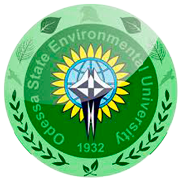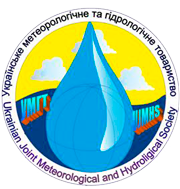Mathematical model for managing marine ecosystem risks
Abstract
The article presents the results of the research aimed at developing and verifying a mathematical model for managing the ecosystem risks of marine areas. The main purpose of the research is to create an effective tool for assessing and managing the risks arising from anthropogenic influence, climate change and other natural factors. The proposed model is based on the existing theory of sea ecosystem risks management and takes into account the relationship between natural and anthropogenic factors, condition of marine ecosystems, their vulnerability and ecosystem services.
The model uses mathematical methods, in particular, differential equations, statistical analyses, simulation modeling and network analysis, allowing creation of detailed models that reflect marine ecosystems' dynamics and their response to external influence. Numerous experiments were conducted in order to verify the model. They demonstrate its ability to predict changes in the condition of marine ecosystems under influence of various factors. The results of the research show that the proposed model can be an effective tool for optimizing management strategies, minimizing ecosystem risks and improving sustainability of marine ecosystems.
Practical recommendations developed on the basis of the results of the research include strategies for preventing, minimizing and adapting to potential threats, taking into consideration each region's and ecosystem's specifics. The proposed model helps to optimize management decisions, reducing risks and improving the condition of marine ecosystems affected by anthropogenic impact and climate change. It is a reliable tool for ensuring sustainability and preservation of marine ecosystems. This approach allows for evidence-based risk management that increases sustainability of marine ecosystems and their preservation for future generations.
The model also considers key factors influencing marine ecosystems, including biological diversity, water quality, industrial fisheries, tourism and recreation, and allows evaluation of effectiveness of various management decisions in the context of such factors. The application of this model in ecosystem management practices allows making more informed decisions regarding protection and preservation of marine resources. It contributes to their sustainable development and provision of ecosystem services having critical importance for society.
References
Slobodnik, J. et al. (2020a). National Pilot Monitoring Studies and Joint Open Sea Surveys in Georgia, Russian Federation and Ukraine, 2016: Final Scientific Report. Dnipro: Seredniak T.K. Available at: https://emblasproject.org/wp-content/uploads/2022/03/EMBLAS-II_NPMS_JOSS_2016_ScReport_ISBN-978-617-7953-60-8-2.pdf
Slobodnik, J. et al. (2020b). 12-Months National Pilot Monitoring Studies in Georgia, Russian Federation and Ukraine, 2016-2017: Final Scientific Report. Dnipro: Seredniak T.K. Available at: https://emblasproject.org/wp-content/uploads/2022/03/EMBLAS-II_NPMS_12_months-2016_2017_ISBN-978-617-7953-58-5.pdf
Slobodnik, J. et al. (2020c). National Pilot Monitoring Studies and Joint Open Sea Surveys in Georgia, Russian Federation and Ukraine, 2017: Final Scientific Report. Dnipro: Seredniak T.K. Available at: https://emblasproject.org/wp-content/uploads/2022/03/EMBLAS-II_NPMS_JOSS_2017_ScReport_ISBN-978-617-7953-62-2.pdf
Komorin, V. (2021). Assessment of the Black sea shelf ecosystem sustainability with mathematical simulation method. Geographia Technica, 16(2), pp. 19–28. https://doi.org/10.21163/GT_2021.162.02
Komorin, V.M. (2023). Theoretical and methodological aspects of managing ecosystem risks in the sea. Ukraïnsʹkij gìdrometeorologìčnij žurnal [Ukrainian hydrometeorological journal], 2023, 31, pp. 33-54. https://doi.org/10.31481/uhmj.31.2023.03
Komorin, V.M., Popov, Y.I. & Ukrainskii, V.V. (2008). [Evaluation of the variability of the hydrodynamic characteristics of the SWBS]. Vìsnik Odesʹkogo deržavnogo ekologìčnogo unìversitetu [Bulletin of Odessa state environmental university], вип.5, pp. 188-201 (in Ukr)
Halpern, B.S. et al (2012). An index to assess the health and benefits of the global ocean. Nature, 488, pp. 615-620.
Ocean Health Index. Available at: https://oceanhealthindex.org/ (Accessed 22/05/2024)





